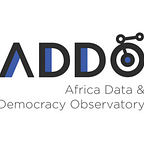China’s authoritarian export to Africa
Inside the authoritarian model of the Chinese Communist Party’s sponsored leadership school in Tanzania.
📅 Original article first published on 20 August 2023
A joint Axios and Politiken investigation by Bethany Allen-Ebrahimian unveils the Chinese Communist Party’s (CCP) training school in Tanzania, exposing its efforts to export its authoritarian governance model. In a departure from its previous subtlety, the CCP is actively teaching African leaders how to fuse party and state, challenging Western influences in the region.
The Mwalimu Julius Nyerere Leadership School acts as a platform through which the CCP imparts its model of governance, positioning the ruling party above the state and judicial system. Beijing presents the school as a catalyst for Africa’s economic and social development, but its primary focus lies in political training, diverging markedly from the CCP’s previous, more subtle methods of peddling influence.
What’s happening
The CCP’s influence strategy involves training ruling party officials from six African countries: Tanzania, Mozambique, Namibia, Angola, South Africa, and Zimbabwe. Despite these countries being multiparty democracies, the longevity of their ruling parties’ time in power has established a commonality. China’s collaboration with these countries signifies a departure from its past strategies, indicating an experiment in exporting aspects of its governance model.
The school operates in the following way: Chinese teachers from party schools in China lead conferences and short courses on party governance, discipline, anti-corruption methods, Xi Jinping Thought, and poverty alleviation. Notably, the training is exclusive to rising members of governing parties, with opposition politicians excluded from participation.
Between the lines
- The school’s programme contradicts the CCP’s repeated assertions that it is not exporting its authoritarian model. Scholars note a remarkable shift, with students leaving the school advocating for a more robust one-party state model.
- Cultivating an authoritarian-friendly political bloc in Africa is a strategic move for China. This bloc could potentially deflect criticism of China’s human rights record and provide international support for its core interests, such as territorial claims in the South China Sea.
Catch up quick
The Mwalimu Julius Nyerere Leadership School, funded by a $40 million donation from the CCP’s Central Party School, demonstrates the extent of China’s experiment in exporting its governance model. Since 2022 the school has held conferences exclusively open to ruling party members. This raises concerns about political interference and the nurturing of authoritarianism.
Our take
As China challenges Western influence in Africa, cultivating an authoritarian bloc could aid Beijing in reshaping global institutions and securing markets amid Western sanctions. The export of the single-party dominance model poses a risk to democracies in Africa, potentially dismantling existing democratic structures. This leaves the Western democracies, already engaged in training programmes, facing competition from China, emphasising a contest of political systems.
Read the full article on Axios.
Summary compiled by Lujain Alsedeg and edited by iLAB copy editor Theresa Mallinson and iLAB managing editor Athandiwe Saba.
